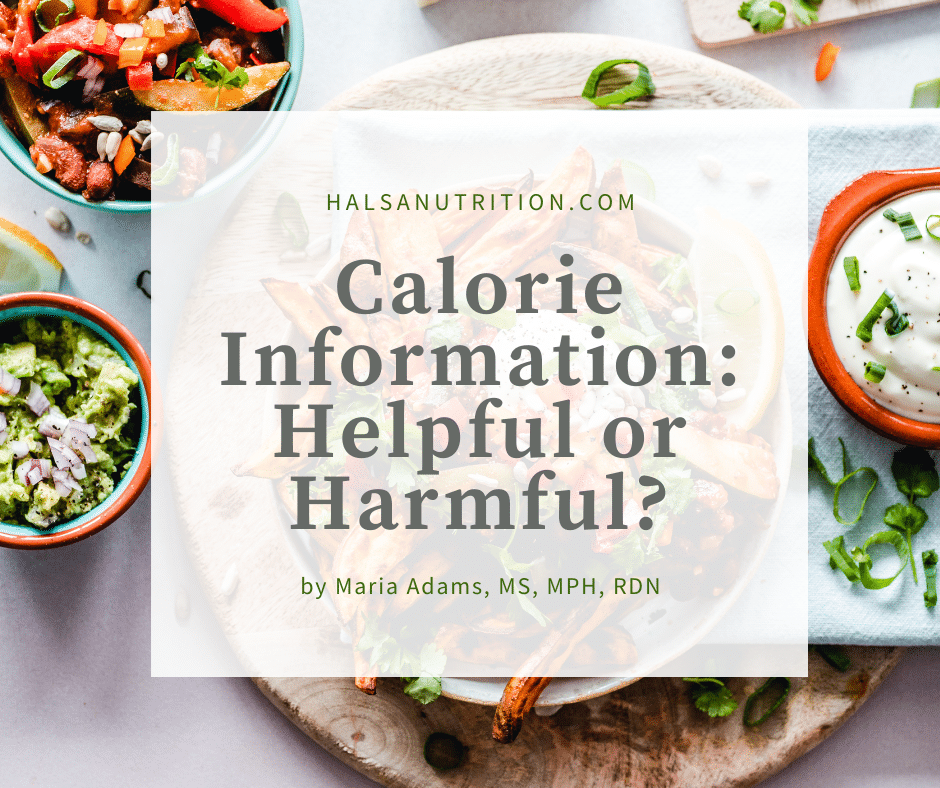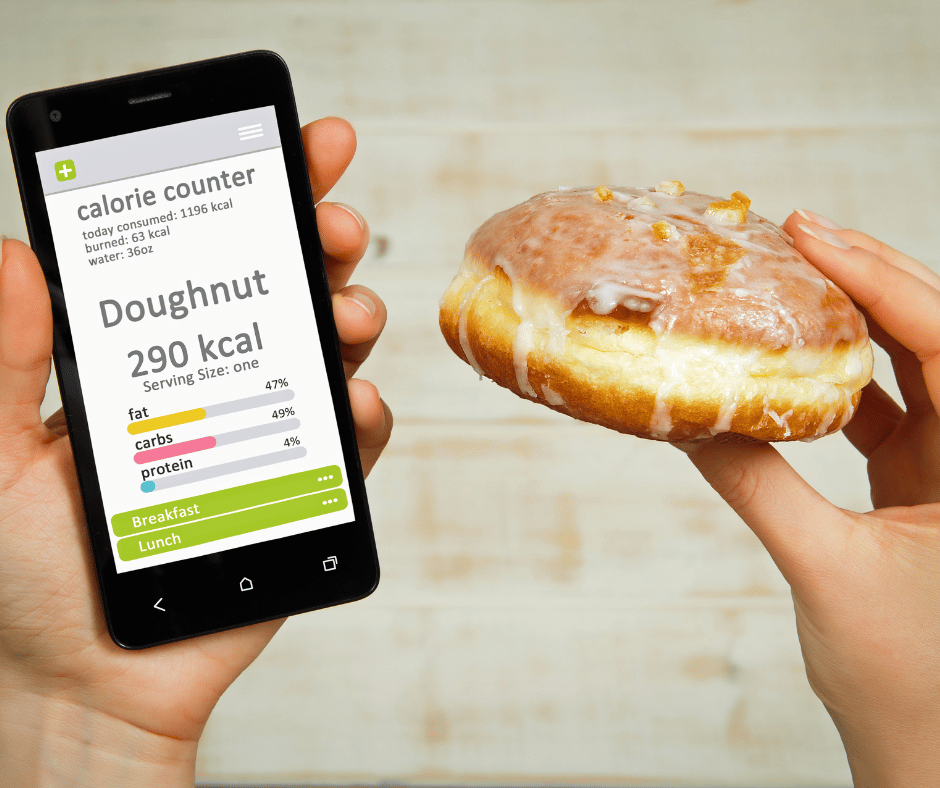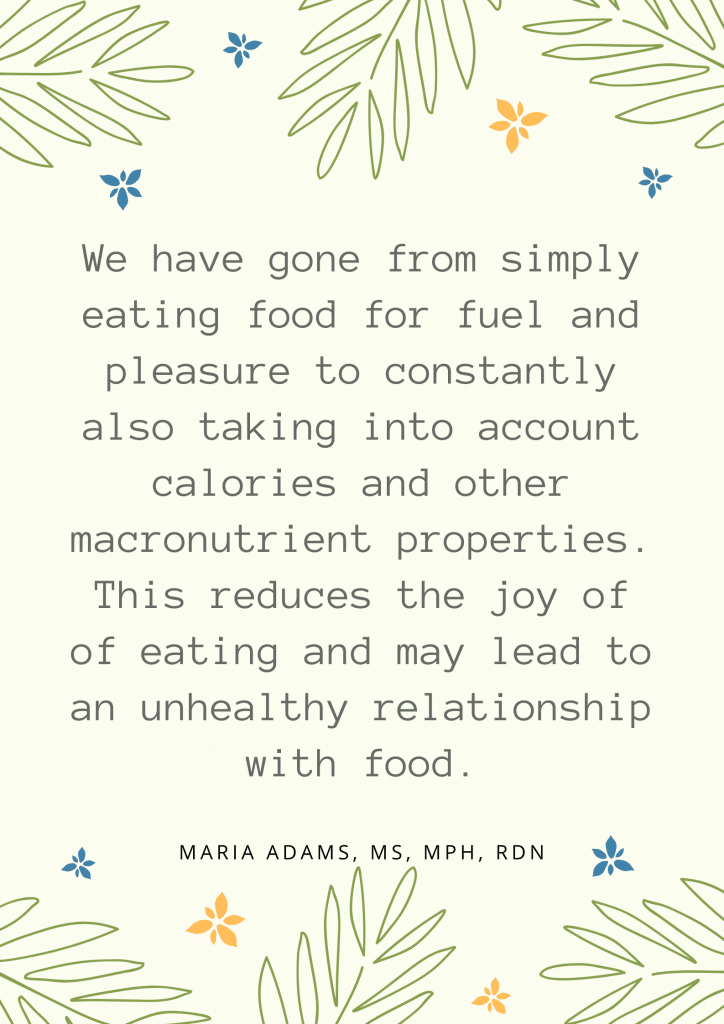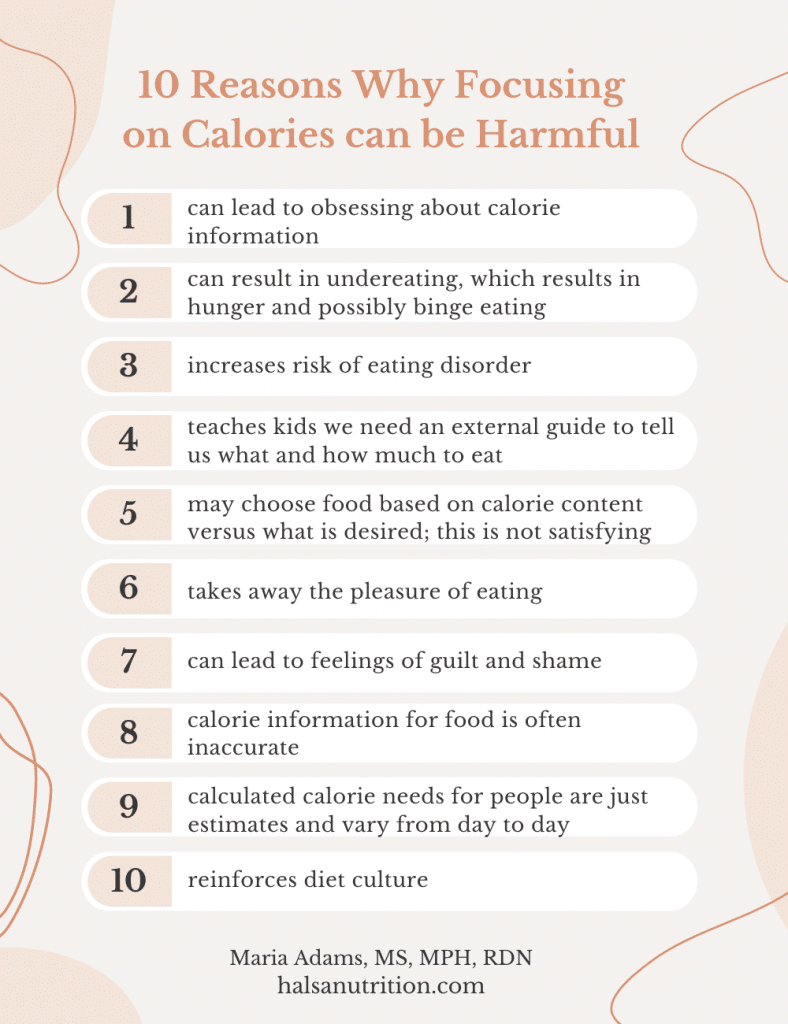
Calorie Information: Helpful or Harmful?
Calorie information is everywhere these days. Food labels, restaurant menus, and recipes are some of the most common places you expect to find them. But is this helpful or harmful?
Estimated reading time: 5 minutes

Traditional Calorie Thinking
While diet culture has ingrained the importance of calorie information into our society, I argue that having it available everywhere may do more harm than good.
But first, let me start out by saying I didn’t always see it this way. As a nutrition student and dietitian, I spent many years focused on calories. I counseled hospital patients on set calorie plans and tweaked recipes to be lower in calories so that the nutrition information would be “satisfactory”.
Our well-intentioned society considers calorie information an important component of balanced eating. After all, if you want to eat well you should know how many calories you are consuming. Your energy intake should balance your energy output. And if you want to lose or gain weight, you just add extra or fewer calories to disrupt this balance. Right?
Unfortunately, it’s not that simple. Yes, a calorie is a measurement of energy. And yes, sometimes it’s helpful to estimate calorie needs. For example, if you have a patient in the ICU who needs to be fed through an IV or if you are an athlete looking to consume the optimal amount of fuel during a long event such as a marathon.
Why You Don’t Need to Focus on Calories
But most of the time there is no need to focus on calories. We are born intuitive eaters, which means our bodies instinctively know how much we should eat. That said, intuitive eating is challenging when you live in a society focused on diets and body size. For example, instead of trusting your body to tell you what and how much to eat, you may have been conditioned to look to external guides, whether it’s your family, your friends, the latest diet, or the calories on a label.
So we learn to trust external guides instead of our own inner guide. We ignore our hunger and fullness cues. We choose unsatisfying “diet” (e.g., low-fat, low-carb, sugar-free) foods because they are deemed “healthier”. We create food rules to cut down on the number of foods we can eat. We try to eat less because society tells us we should.
We have gone from simply eating food for fuel and pleasure to constantly also taking into account calories and other macronutrient properties. This reduces the joy of eating and may lead to an unhealthy relationship with food.

Why Focusing on Calorie Information can be Harmful
While many health and nutrition experts may view the calorie information posted everywhere as helping people make “smarter” choices. It does so with a cost and ultimately it may do more harm than good. Here are 10 reasons why focusing on calorie information can be harmful:
- It can lead to obsessing about calorie information.
- It can lead to undereating, which results in hunger and increases obsessive food thoughts and the likelihood of binge eating.
- It can increase the risk of an eating disorder.
- It teaches our kids that we need an external guide to tell us how much to eat and that we should always be careful to not eat “too much”.
- It may lead you to choose food because of its calorie content, not because it’s what you wanted. This may lead you to feel unsatisfied.
- It can take away, or at least reduce, the pleasure of eating.
- It can lead to feelings of guilt and shame if you consume what you perceive to be “too much.”
- Calorie information for food is just an estimate and often inaccurate. In fact, the FDA allows a margin of error of 20% on food labels. (Source.)
- Likewise, estimated calorie needs for people are just that, an estimate. Everyone is different, and how we absorb and use calories varies from person to person. Two people of the same sex, age, height, weight, and activity level can have very different calorie needs. Calorie needs also vary from day to day.
- Finally, it reinforces diet culture, a system of beliefs that includes worshiping thinness, promoting weight loss, and demonizing certain ways of eating. (Source.)
These are some of the many reasons why I don’t focus on calories when I counsel clients or include calorie information on the recipes on this site.
When is Calorie Information Helpful?
I think that it’s helpful to remember what calories are: units of energy that help fuel our body. I also think it’s important to not be afraid of calories. We need them to survive! It’s the obsession with calories and counting calories that is not needed.
While many people feel that tracking their calorie intake helps them “stay on track” with their eating habits, as mentioned above, it does so at a cost. For many, it will take the joy out of eating and lead to an unhealthy obsession. For all, it will make true intuitive eating impossible.
That said, there may be certain medical conditions that make it important to know calorie information, but otherwise, no, it’s generally not helpful or needed.
So, in conclusion, the next time you are searching for a recipe, choosing a food, or riding your exercise bike, ignore those calorie numbers! We don’t need to know the number of calories we are consuming or burning. Instead, focus on getting back in touch with your inner intuitive eater.
And if you need a little extra support and guidance, consider meeting with a dietitian who takes a non-diet, intuitive eating approach. You will be amazed at how much more freedom you feel once you let go of intrusive calorie or other diet thoughts!

Leave a Reply